'The Boys' Season 3 Has a Big Kink-Shaming Problem

- Oops!Something went wrong.Please try again later.
The Boys spoilers follow.
The Boys is no stranger to controversy. Over the course of three seasons, it's tackled and lampooned everything from white nationalism and 'cancel culture' to Stan Lee and the #SnyderCut.
All these storylines are perfect examples of how the show pushes its edgy 'What if the Justice League were bad?' conceit to the extreme in order to ruthlessly satirise both superhero fiction and wider American culture.
Its ridiculous violence plays with these themes all the time, repeatedly asking viewers to think about the kinds of collateral damage caused by the powerful when there are no checks in place.
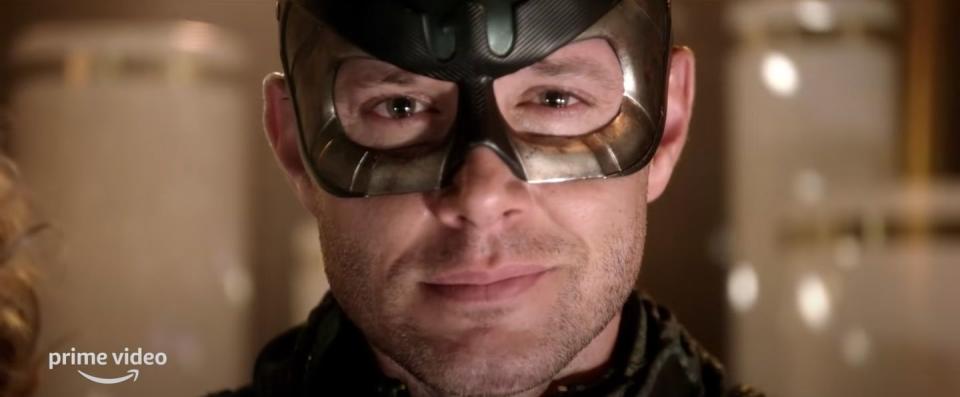
Unfortunately, the way The Boys deals with sex and sexuality doesn't quite match up with the rest of its writing – a fact that's come to a head in the hotly anticipated season three episode 'Herogasm'.
The Boys is infamous for its handling of darker and more mature tones, but when it comes to sex it ends up feeling silly, adolescent and kink-shamey. This odd prudishness is most clearly expressed in the way its villains, both super and otherwise, are so often shown having non-traditional (that is, not heterosexual, not in the missionary position) sex.
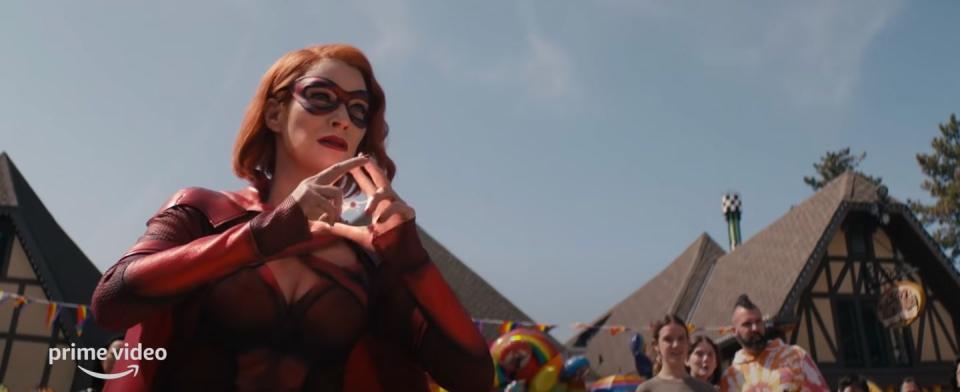
When our antiheroes and/or the camera walk in on something "shocking" involving BDSM or ridiculous sex toys or multiple partners, we're meant to understand that this abnormal sexuality is part and parcel of a character's moral shortcoming.
There are lots of examples of this across the show's three seasons and it's even present in the way it handles Homelander. The (terrifying) central villain's "depraved" sexuality, from his desire to be nursed by Stillwell to his attraction to himself in lingerie, is clearly meant to be linked to his inherent moral failings.
In fact, even beyond Homelander, one of the first inklings we get about the show's approach to and use of sex comes right at the very start of the show. In season one we see A-Train's sometime girlfriend Popclaw kill her landlord during some particularly vigorous (drug-fueled) sex, which she's doing to pay rent.
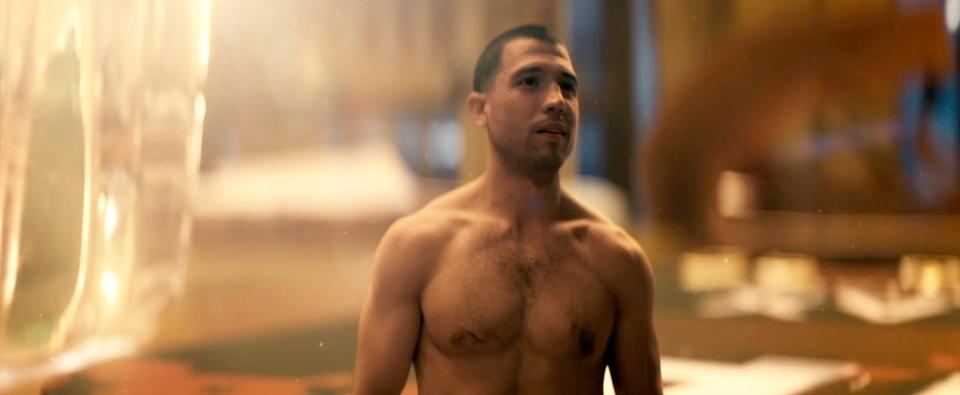
More recently, right at the start of season three, we saw Termite using his shrinking power to walk around inside his boyfriend's dick during sex. Unfortunately, a cocaine-induced sneezing fit caused him to prematurely return to normal size, exploding his partner (and their junk).
Season three continues the sexcapades with episode six, aka 'Herogasm'.
Despite the episode being all about supe sex, there actually wasn't anything too outrageous involved apart from some high-velocity fluids and a pair of electrified nipples. Well, and an octopus. Even within these relatively tame circumstances – cephalopods apart – it's clear the orgy is meant to a) make the audience laugh, which it does, and b) once again suggest moral depravity on the part of the supes.
Intertwined with the way The Boys uses kinky sex to signify that something is morally off about a character is the way it uses that very sex to punish and often kill them.
In season three's fourth episode, Kimiko infiltrates a sex party in order to assassinate a nameless Russian goon on behalf of Nina, only to discover that he has an extensive collection of dildos – which she uses to kill him and his guards.
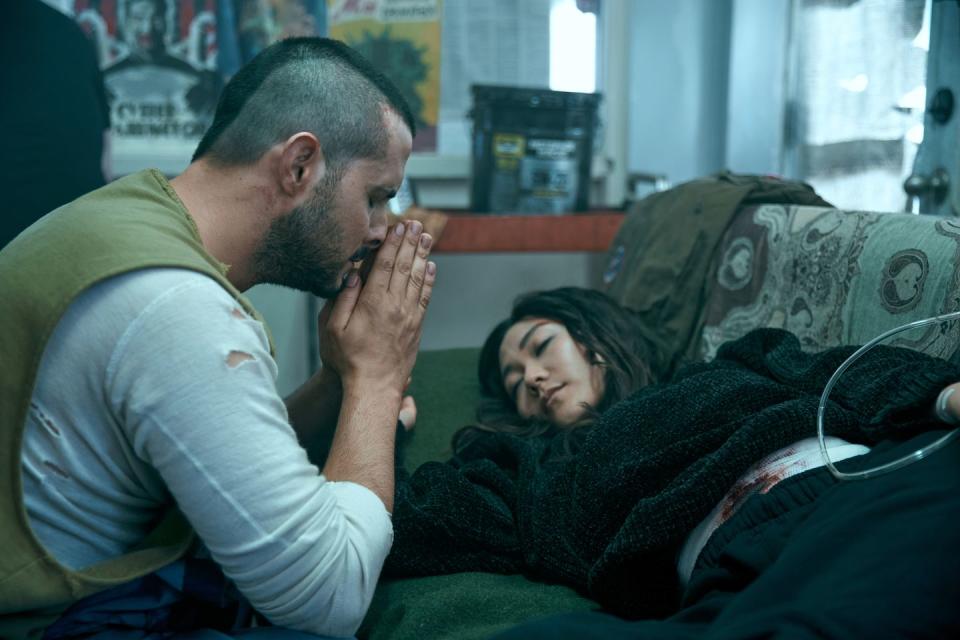
Here the show takes twisted delight in turning his own sexual misdeeds (as it sees it) against him – after all, what's a more ironic way to punish a pervert than killing them with their own sex toy?
Although a more complicated situation, we see a similar type of inverted sexual violence happen to Chace Crawford's The Deep in season one when he's assaulted by a fan.
It's a particularly odd moment in a storyline that was unsure whether it wanted to redeem the character (after his assault of Starlight in the show's premiere) or reduce him to comic relief – or do some combination of both.
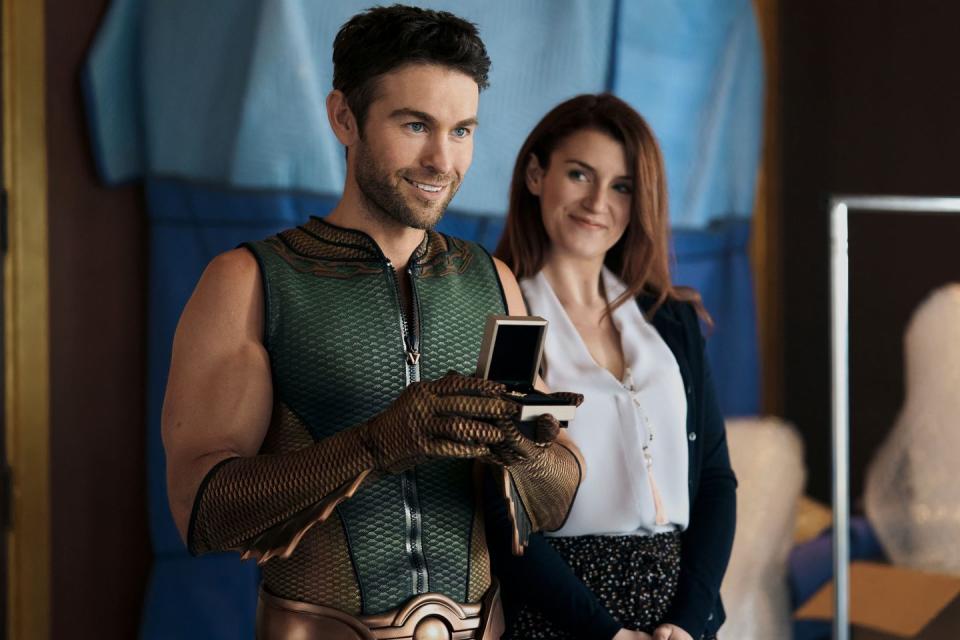
Contrast this with characters it views as heroic. In season three's fifth episode we saw Maeve and Butcher having pretty standard (and superpowered) sex. Maeve's superstrength and Butcher's V24 dose meant that powers were on display, but there was nothing 'unusual' or kinky about the scenario because hey, they're good guys.
If the violent kinks of the supes are just a way to answer "What does superhero sex look like?" and not an implicit moral condemnation, then how do we explain this?
The other example of "normal" sex we see is between Hughie and Starlight. Annie January is in possession of powers that could definitely be used in the bedroom, or at the very least could accidentally cause some damage, but we're led to understand the pair have a relatively vanilla sex life.
Both these circumstances are complicated by the fact that The Boys doesn't only deal with moral black and whites, but it's hard not to read these characters' predilections as, at the very least, moral signifiers.
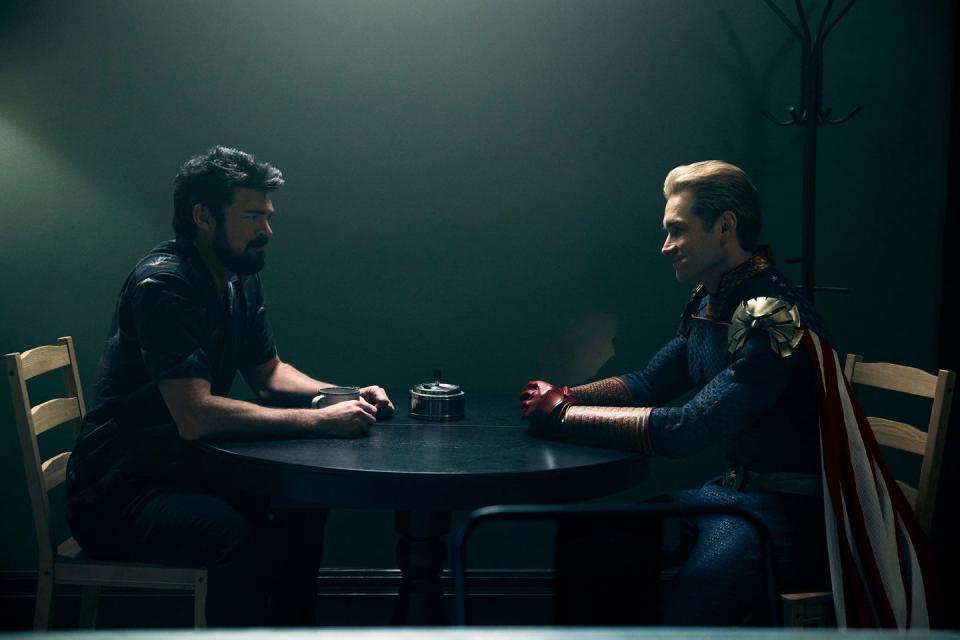
All this isn't to say that The Boys shouldn't deal with sex, or even to say that it shouldn't be presented alongside the kind of gory violence that makes up its visual punchlines.
The issue is that this type of writing, which attempts to plot sexual behavior on an axis of how good/evil a certain character is, can lead to weird repressive conclusions about real people.
At the end of the day, there's a lot of comedy to be mined from sex – and even more from superpowered sex – but the times and places those jokes are employed suggest a level of conservative thinking that is wonderfully absent from the rest of the show.
You Might Also Like

